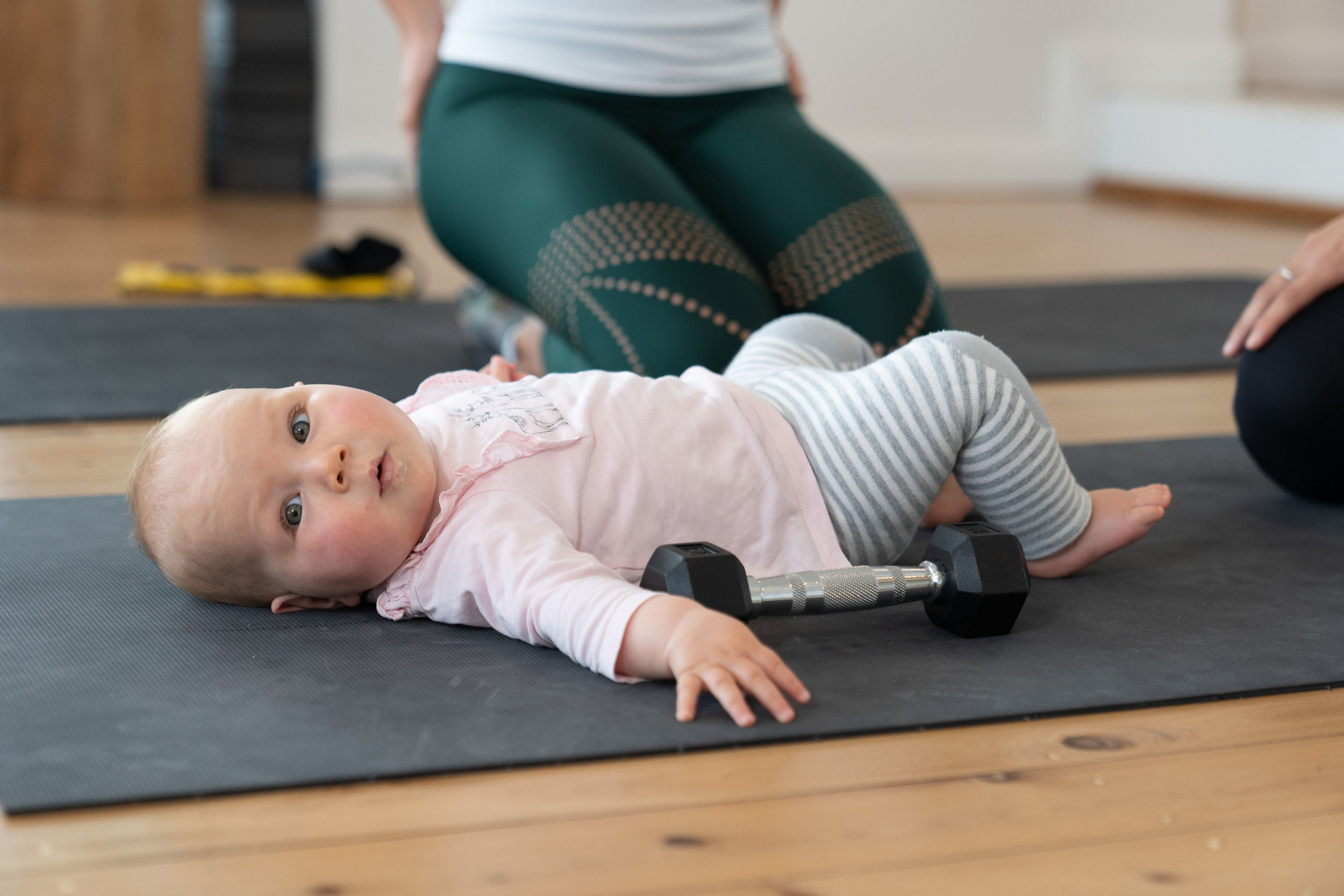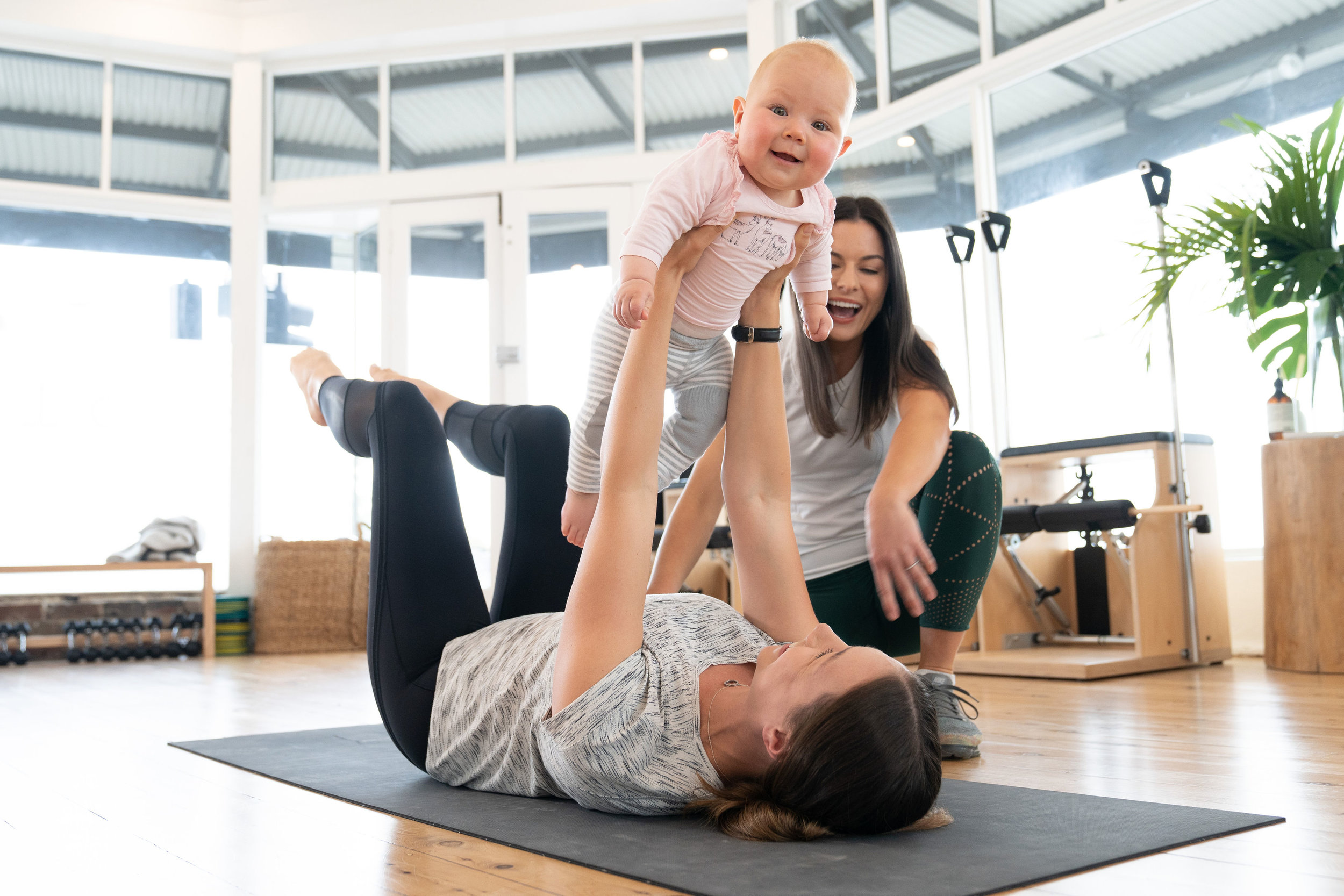POSTNATAL CARE

Life as a new Mum can be beautifully chaotic.
There is a whirlwind of information on things like breastfeeding, sleep routines, which car seat/carrier to buy, baby brain development…the list goes on. It is understandable then, that your own health and recovery can become somewhat overwhelming.
“Where do I start, what do I do, and who should I see?”
At The Pelvic Studio (TPS) we are here to make things easier for you.
We are here to guide you on your health and recovery. We care about your body and mind, and we especially care about your pelvic health. We want to educate you on how to maintain your pelvic health and avoid the all too prevalent issues that can occur after childbirth.
Our postnatal services include:
Appointment Timeline:
We advise coming in to see one of our pelvic physiotherapists for a six-week postnatal check. TPS strongly believes that a 6-week postnatal check should be standard care. In other words, all those who have given birth should have a thorough pelvic assessment regardless of the presence or absence of a postnatal issue. Although an early postnatal check is ideal, even if your children are all grown up, it’s never too late for an assessment.
Once we have assessed your unique body (as no postnatal body is the same), we can provide specific information on your return to day-to-day activities and exercise. During your assessment if any issues are identified a unique rehabilitation program will be prescribed that is tailored to your needs and goals.
Initial Postnatal Assessment: 2-4 Weeks Postnatal
Abdominal wall assessment
Early postpartum rehab prescription
Advice and education on postpartum symptoms
+6 weeks postnatal (6 Week Postnatal Check)
A six-week Postnatal Check assesses and/or treats the following:
Postural Alignment: How you stand, sit & feed
Functional Stability: How you move, bend & lift
Abdominals: Abdominal separation &/or hernia / Caesarean scar management
Pelvic Floor: Perineum (including perineal tearing &/or episiotomy scar), Pelvic organ prolapse, Pelvic floor (including tone, strength, endurance, speed, coordination & timing)
+12 weeks postnatal (Return to Higher Level Activity)
Pelvic floor assessment: to ensure appropriate strength and endurance to return to higher level activity
Global strength assessment: including core and lower limb strength
Load impact assessment: including hop, jump, bound etc
Addressing any pre-existing injuries or deficits: such as back/hip/knee/ankle/foot pain, ankle/foot instability, abdominal separation etc
Advice around supportive footwear, supportive bra’s and running prams
Tailored Strength and Stability Program: based off your assessment and guidance on graduated return to activity
——————
Your physiotherapist may recommend further appointments based off your assessments to ensure you are well supported in your postnatal rehab. Please know even if you’re 16 weeks or 16 months postnatal, it’s never too late to see a pelvic floor physiotherapist!
Postnatal Exercise Classes
The Pelvic Studio offer postnatal physiotherapy exercise classes to support your postnatal recovery goals! These classes are a fantastic community for like-minded mums to get back into exercise under the guidance of an experienced physiotherapist.
Our classes involve:
a) functional group exercise using our cable machines and weights
b) Pilates-inspired exercises using our reformer machines and mats
c) stretching and yoga poses to improve range of motion and reduce pelvic tension
Providing you with the perfect well-rounded pelvic experience!
Our class info can be found on our Postnatal Class page here.
As part of our postnatal care we often prescribe specifically tailored exercises for home. We are also more than happy to work closely with your local Pilates Studios or gym.
more information

What does a pelvic floor and deep core assessment involve?
Your pelvic floor can be assessed via an internal vaginal examination or using an ultrasound machine.
If you opt for an ultrasound assessment, the probe is placed over the lower tummy or over the perineum (the area between the vaginal and the anus).
An internal vaginal examination is a more thorough form of pelvic floor assessment. During an internal exam we assess your pelvic floor tone, strength, endurance, and speed. We also check if your pelvic floor is turning on automatically when you cough or exert effort.
Your deep core assessment is done using the ultrasound machine. During this assessment you will be able to see on the display monitor the three layers of your abdominal wall; rectus abdominis, obliques and transverse abdominis (also known as your deep core).
When we cue a gentle deep core contraction you will be able to see this deepest layer slide and fatten. Similar to a corset tightening around your back.
Our patients often describe their deep core assessment as a ‘light bulb’ moment; they finally understand what it is, why it’s important and how to turn it on.
What is abdominal separation?
Abdominal separation refers to the thinning and widening of the linea alba. The linea alba is the connective tissue that connects the left and right abdominal muscles. It’s important to know that a degree of abdominal separation is required during pregnancy (especially in the 3rd trimester) to create space for your growing baby.However, if abdominal separation is excessive this can place too much stretch on your linea alba and can affect the integrity of your abdominal wall.
It is important to support the rehabilitation of the abdominal muscles postpartum to prevent prolonged abdominal separation which can lead to lower back pain, postural changes, frequent bloating, constipation and urinary incontinence.
You can read more on the importance of your abdominal muscles in pregnancy and postpartum here.
Can you bring your baby to your appointments?
Of course! The Pelvic Studio are 100% bub friendly, and welcome bubs to both your appointments and exercise rehab sessions.
Our reception team are also on hand to settle bubs if required!
There's plenty of room to change and feed bub in the clinic too.






